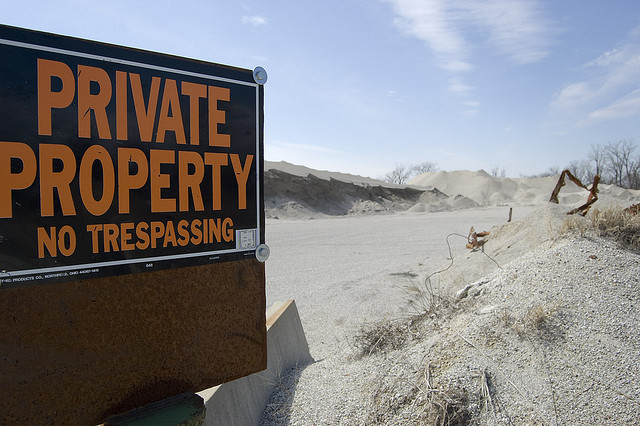
An Oklahoma gravel pit.
PhotoFlounder / Flickr


An Oklahoma gravel pit.
PhotoFlounder / Flickr
Lawmakers in limestone-rich south-central Oklahoma have, for years, pushed for a new tax on companies mining for rock and sand.
Those efforts have failed, but the fight will be revived in the 2014 legislative session. Johnston County Commissioners have formally endorsed an organization that will lobby for a tax on sand, silica, gravel and other aggregates, The Oklahoman‘s Adam Wilmoth reports:
Oklahoma County Commissioner Ray Vaughn said he expects most county commissioners to support the tax proposal.
Oklahoma Citizens for Aggregate Benefits will encourage county commissioners, county officials, rural fire departments and others to support HB 1876, which would allow counties to set a tax of up to 7 percent on the production of aggregates.
Commissioners say the tax would help fund repairs to county roads damaged by trucks and equipment used by mining companies. State Rep. Charles McCall, R-Atoka, authored the bill. A senate version of the bill, authored by Frank Simpson, R-Springer, died in committee in 2013.
Oklahoma has some of the best limestone in the world, and most of the companies permitted to mine aggregates are based in Texas, StateImpact reported in September 2012. Oklahoma doesn’t collect any taxes on rock and gravel that is exported and sold out-of-state, Rep. McCall told StateImpact in February 2013:
“However, if this material were sold out of state — and there is a large amount of material that does leave the State of Oklahoma, — whichever destination state that it arrives, if there is applicable sales tax it would be remitted in that state. So we’re not interested in a double taxation scenario, but we are interested in a financial benefit on that material where those sales tax dollars leave the state.”
Most of Oklahoma’s neighboring states don’t levy taxes on rock, sand or gravel mining. Arkansas charges 4 cents a ton, The Oklahoman reports. Texas taxes cement production, sales and import.
Oklahoma mining companies and aggregate companies oppose the proposed tax, “which could be set at different rates in different counties,” Wilmoth writes:
“This would be a nightmare for the companies operating in those counties to keep track correctly of this tax,” said Jim Rodriguez, executive director for the Oklahoma Aggregates Association.
“It would also create an imbalance within our industry, having materials counted one way in one county and another way in a neighboring country. It’s a very bad idea,” Rodriquez said.
Even if the proposed rock and gravel tax makes it through the state legislature, it faces another significant hurdle: A 75 percent legislative majority is required to enact new taxes, a provision that’s been on the books since 1992, when voters approved State Question 640.